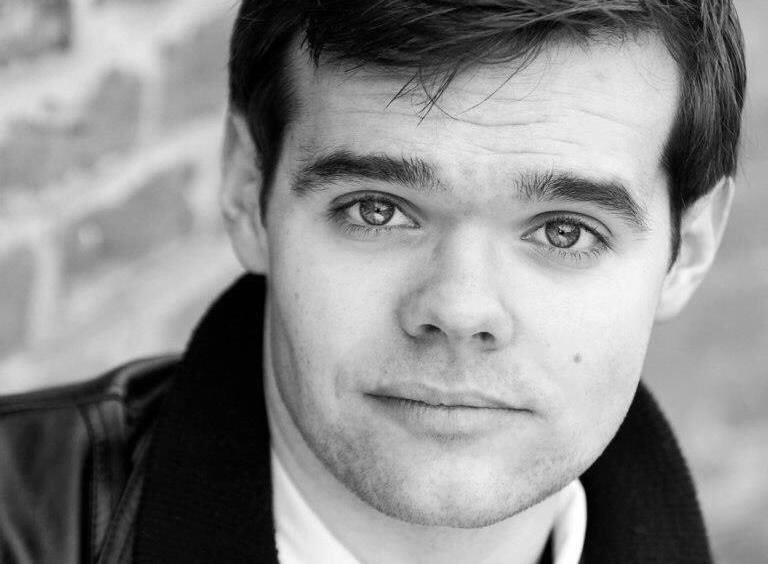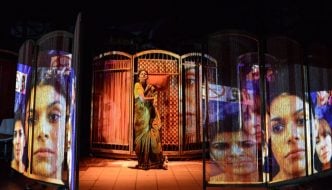Q&A with Amazing Grace writer and director Leo Charlton
July 15, 2016

Leeds-based Leo Charlton is set to debut his new play, Amazing Grace, at The Carriageworks Theatre in September. The play follows Lockwood Stephens, a comical but mentally unstable man, as he recounts four key moments (and, in some ways, interviews) that have shaped and defined his life. We see him tackle his first job interview, a date, a conversation with his fiance’s father… and then something happens. Something that will change his life, and the lives of those around him, forever.
All the while, Lockwood converses with two manifestations of his psyche (male and female), and laments the love he thought he felt but was false, and the love he never knew until it was too late. Lockwood’s story is tinged with regret, self-pity, murder, deceit, and insanity. A black comedy to begin with, Amazing Grace turns full tragedy with time.
TSOTA got the chance to ask Leo some questions about his upcoming play, which he’s both written and is directing.
You’ve written Amazing Grace, and you’re also directing it – was it always your vision to direct your own play?
Yeah, definitely. The thing is, I like some theatre, but I love film. And I think that film at least kind of ingrains in you this sense that you have the potential to write these types of stories. And not only that but what you pick up on the way – just by watching, seeing, imitating and doing – leads you to know – instinctively know – how you can put this together.
So that’s what I wanted, I wanted to create these stories that would do things to people, emotionally through narrative and visual style, and construct them in my mind as I write. But that’s I think allows a greater amount of freedom and the chasing of moments, moments that just come into being from a creative freedom that you might not get when you are trying to adhere to someone else’s work. So yes, I fully intend to continue to direct my own works.
You’ve previously directed other productions with LAC, and also have acting experience. If you had to choose between only writing, directing, and acting, which would you choose and why?
Well I’m never going to be an actor so that’s that one crossed off, though I do very much enjoy enveloping yourself in this other person for a period of time. Hmm. If I direct I can’t write, and vice versa. Probably a director then. I love working with actors to capture these moments, and then threading them altogether. Getting the right shot when filming as well – that’s pretty awesome.
Tell me more about your main character, Lockwood. He seems quite a complicated fellow! How did the idea for the character first come about? And, thinking about it, how did the idea for the whole play come about? In particular – how did you decide on the title?
I find inherently flawed characters very, very interesting. Because it begs the question whether there is really anything that these people can do (and I’m talking the Daniel Plainviews, the Norma Desmonds, who are consumed by one thing or another and almost become an embodiment of that characteristic force), or whether they’ve always been lost. I see Lockwood as being of their ilk – a clown who is too busy applying makeup to inspect the cracks in his own skin.
As for the play, well that seemed to come from vague notions that I had concerning forming a play around four interviews at different stages of a person’s life. So for all intents and purposes I hashed out the structure very quickly and set to work creating the characters and the dialogues that would fill this format. The second act moves away from the interview format though, and in a way it is this loss of form that signifies a complete tonal change.
I can’t tell you exactly why ‘Amazing Grace’ because it resides firmly in spoiler territory. But needless to say, Lockwood is far from graceful in the way he conducts himself.
What kind of cast will you be looking for? Do you have a specific team dynamic in mind?
Oh well, I love to work with people that show a passion for what they do, and who aren’t afraid to throw things out there. A lot of what we’re going to be doing in order to make all of this come together is trying new things and going a little off-road, because really there are many ways that this story could be told. It’s up to us to really work out which is the best way. So this is going to be a majorly collaborative endeavour, and so I really want to see people who can make their own decisions and have a creative eye to what they’re doing. The environment will nurture that, so I really can’t wait to see what we come up with.
Do you have a specific directorial style?
I like to nurture an environment that is akin to being with family, where people are comfortable to try new things and not be judged on them. Creativity is key to everything, and I try to facilitate that as best I can. I speak with the actors to really get to the root of what it is we are trying to achieve, and guide that process as best I can. But really, everything you see from the actors will have come from them, ultimately.
What made you choose to put on the play at LAC, the regional arts group?
Autonomy, pure and simple. The LAC are hugely supportive to their cadre of directors, and when given the opportunity to direct my own play, with free reign over how that should look and who will be a part of this thing – that provides for a positive creative environment to be established. It’s going to be a great play because of it.
What have you taken as inspiration for Amazing Grace?
Everything and nothing. There was nothing that I particularly saw and went ‘I want this to emulate this’, and what have you. But I feel as though the wealth of my interests have informed the production of this play in some way.
The central device of Lockwood breaking the fourth wall is evidently seen in the likes of Fight Club, House of Cards, and is a form of narrative storytelling that Fincher employs wonderfully. Tonally though, I look at the work of Martin McDonagh, The Pillowman and Seven Psychopaths being class-acts in the theatrical forms and filmic forms respectively.
I guess there’s also a Donnie Darko, Enemy (2013)-esque weirdness to proceedings that may take some time to piece together. You could also say, although perhaps not from the script alone, that there is a little something of Drive in this. But then, for me at least, everything comes back to Drive. Maybe in my next project you will see that too.
Next project. Can you give us any information on that?
Well I don’t know how much I can say at this point, probably not a lot. I am working on something else right now, a dark fairy tale centred on the loss of innocence in a coming-of-age context. I’m looking at various sources for inspiration – Guillermo Del Toro’s gothic works, Central/ Eastern European fairy tales… the lyrics of ‘Scarborough Fair’ informed the initial idea to create this type of piece. I don’t know when The Elfin Knight will see the light of day, in all honesty, as I really can’t rush this – it has to happen organically. But really, I can’t wait to make this available for people and to start this as a project in earnest. I hope that this will be my next project after Amazing Grace.
If you had five words to sum up the play…
Fun while it lasts, sadly.
Finally, when is the play running and why should people go to see it?
People should come and see it because I’m confident you will not have seen a play like this before. Perhaps you will have never discussed a play as much as this before afterwards, either.
For more information, visit the Facebook page or follow the Amazing Grace Play on Twitter at @agplay2016. The play is running from September 28th – October 1st at The Carriageworks Theatre, Leeds, so make sure it’s in your diary!
Filed under: Theatre & Dance
Tagged with: Amazing Grace, Carriageworks theatre, director, interview, leeds, Leeds Arts Centre, Leo Charlton, play, theatre, West Yorkshire, writing



Comments